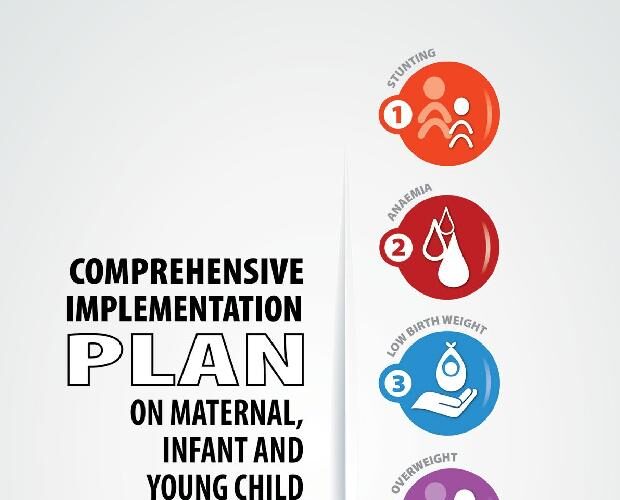World Health Organization
Since the approval of the Comprehensive Implementation Plan on Maternal, Infant and Young Child Nutrition in 2012 food and nutrition policies have received increased political attention.
The global nutrition targets endorsed by the Health Assembly in resolution WHA65.6 have been widely adopted by global initiatives, including the Scaling Up Nutrition (SUN) movement, the Global Nutrition for Growth Compact and
several donors’ strategies. The targets are also referred to in several documents leading to the post-2015 development agenda.
Through the SUN movement, 50 countries have committed themselves to improving the political environment, aligning multiple actors, advancing policies and legislation and rapidly scaling up effective nutrition actions. In June
2013, government leaders from 19 countries as well as development partners, the private sector, the scientific community and civil society groups undertook to prevent at least 20 million children from being stunted by 2020, in line with the comprehensive implementation plan’s global targets for 2025. Fourteen of these 19 governments committed themselves to increasing domestic resources invested in expanding national nutrition plans, namely up to US$ 4 150 million for specific nutrition interventions and an estimated US$ 19 000 million for improved nutrition outcomes from nutrition-sensitive investments between 2013 and 2020.
There is greater understanding on how combined actions in the health, food, water and sanitation, education and social support sectors are contributing to improved nutrition and countries are increasingly focusing
on the development of multisectoral plans to improve nutrition. WHO has prepared and updated guidance in several areas, including provision of vitamins and minerals in different age groups, fortification of staple foods, management of acute malnutrition, and dietary goals for preventing obesity and diet-related
noncommunicable diseases. United Nations specialized agencies, together with the World Bank and academics indicated that agricultural policies and programmes can be made nutrition-sensitive if they are designed to increase
the availability, affordability, and consumption of diverse, safe, nutritious foods; align with dietary recommendations and ensure environmental sustainability; empower women; and include nutrition promotion messages.

